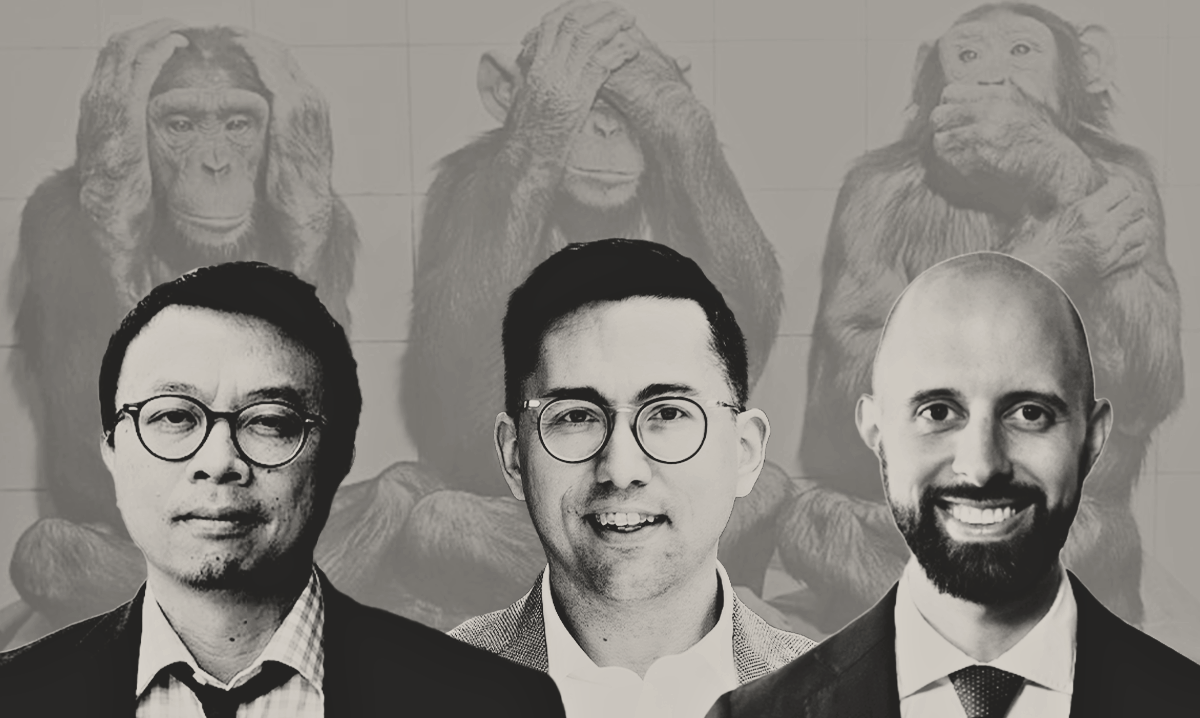It is Sept. 6, a Friday morning, and I prepare to leave my sunlit apartment and head to Seattle Central College, where I work. As I pour my first cup of coffee, I receive a text from my boss: “Can you call me when you have a chance today? Schedule change I want to go over before Monday.” In my mind, it’s nothing serious. To my surprise, however, I hear that Student Leadership, the department I work under, is suspending on-campus activity for the following week and something about a gun threat in an email. Information isn’t clear, and I’m just as confused as my boss. For a moment, I’m hesitant to go to campus at all. Over the following days, I learn more about the situation, which ultimately results in scheduling interviews and gathering emails for an article. “If I’m concerned about being on campus,” I think to myself, “I can’t imagine what the rest of the team feels,” thinking of those who directly received the Dean’s email. Later, I’d hear the thoughts of Director Molly Pettiford, whose first name was included in the “gun email,” and find that it was perceived as a threat—rightfully so.
More than that, I’d find that those in positions of leadership, whose care is expected, failed to offer basic support. Not only did they fail to address the team’s concerns, but they also left employees in the dark. During my interviews, several workers told me that they did not know the details of the situation, had not read the email, and were left to seek missing pieces to a disturbing puzzle. Fear grows in the face of uncertainty, especially when it involves one’s safety. Though Vice President LeZheo wrote that he didn’t find Ajiboye’s email a threat, he never explained how he knew that. Why should one trust words that come stripped of arguments? Especially when those words come from someone who did not trust that one’s concerns were legitimate?
With questions regarding the ethics and legality of covering the situation, I keep in mind the most basic role of a journalist: to simply serve as a medium between the truth and the world. I want to clarify the uncertainty (and the emotions that walk hand-in-hand with it) for fellow students, employees, and faculty. Individuals should be able to make their own decisions and come to their own conclusions. For that, they need clear information. Access to truth is a necessity, especially in a professional environment, and that’s the belief I hold onto as I gather the facts and put them in writing.
After a month of work, the piece is finally published. I am left with a strange parallel: journalism and leadership, specifically what was explored in the article, have much in common. Honesty, clear communication, and transparency are the guidelines of great journalism and of great leadership. In the story, however, it is difficult to infer those qualities in the conduct of Seattle Central’s leadership. Several times, I asked myself and my interviewees what could have been done differently to achieve good management of the situation and a fair outcome for all parties involved. Although the answer gets lost in the mire of bureaucracy, it is evident to me that Central’s leadership has no interest in clear communication, and that’s where they fail.
Communication involves both practical issues—leadership’s failure to disclose the details of the emails with employees and the flawed chain of communication between employees and directors, deans, and leadership—and the underlying, more abstract, hierarchy of communication that failed to regard employees equally and fairly. An illustration of the latter is Kao LeZheo and Scott Rixon’s failure to address Molly Pettiford’s concerns and provide her and her team with the same support shown to Kunbi Ajiboye, as was later revealed in a follow-up article.
Effective leadership starts from regarding others as capable humans, equal to their leaders. That does not mean institutional and workplace hierarchies shouldn’t exist—the system, stripped of corruption, is in place for a reason. The larger the institution, the more workers it requires to function and the greater the expectations from leaders. Seattle Central College, an institution of higher education with a history as storied as the city of Seattle, holds the mission of providing open-access education. “There is not one societal problem that doesn’t touch on education as part of its solution,” my father said to me many times during my upbringing. His words, spoken in Portuguese, ring true in every language I’ve come in touch with.
Effective education, in turn, starts with clear communication. I use the word “education” to refer to its primary definition of passing along information. This applies not only to instructors towards their students but to leaders towards their subordinates. “Clear language is a basic form of kindness,” remarks Megan Garber in an article for “The Atlantic.” “It considers the other person. It wants to be understood.” In light of Central’s leadership and the mishandling of the situation in question, the three individuals in leadership positions—Director of Human Resources Scott Rixon, Vice President of Student Services Kao LeZheo, and President Bradley Lane—neither considered their subordinates nor wanted to be understood. This became a glaring fact during multiple interviews I conducted with workers, from emails released through a public records request, and through the decision of leadership not to provide comment when The Seattle Collegian reached out to them on multiple occasions.
To play their roles effectively, leaders must listen to those around them. They must realize they have no role without the people they serve. Likewise, a journalist has no purpose without the public, a teacher has no function without students, and humans have no reason to do anything without a community that supports, challenges, and guides them. By upholding a culture of siloing, leaders become isolated from their community, rendering them unable to lead.
Leaders, therefore, need to listen in order to serve their community, but they also need to address community concerns publicly. From listening comes understanding. From understanding comes perceiving others as equals who deserve clear communication. From clear communication comes unity, comes progress, comes leadership that values and responds to community voices. Unfortunately, Central’s leadership has left too many members of our community feeling unheard, unseen, and undervalued. A functioning community cannot exist without open dialogue. It is time to bring community back into Seattle Central College.
Author

Sophia is an internationally published author with her book Primeira Pessoa, as well as a young classical singer. Born and raised in Brazil, she believes the greatest role of a writer is to bring forth the truth, the honesty, and the humanity that echoes within each one of us.







Food for thought:
Since the most hurt seems to be caused by lack of information given by leadership, what if leadership learned that there was no threat to staff because they learned of a medical emergency with the former Dean? What if they learned about an important piece of information that the original article doesn’t touch? The topic of a mental health crisis – that causes one to act in an irrational way especially if under the influence of other substances. In that case, you are not able to disclose another person’s medical issues since it’s illegal.
This all goes back to that for me – airing someone’s biggest mental health crisis for the world to see. The other concerns are valid, however, I can’t stop but think you have one side to the story.
I wouldn’t feel bad for Bradley, he refused multiple times to tell his side of the story. And he acts surprised when he hears of the news but the articles have proven he has known about the issues going around for a while. He’s CC’d in those e-mails. He’s had time to intervene. He’s had time to listen. He is just an avoidant non-confrontational scaredy cat with no backbone to wrangle his crew of monkey leaders. No action, is an action itself. He’s chosen the side of the oppressors, he’s chosen the side of the abusers. That’s where the harm is! But you all don’t want to hear about that. Did the people facing the workplace abuse get 6 weeks of medical leave?